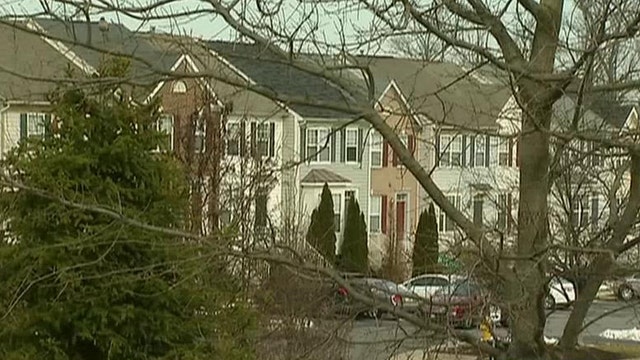White House eyes plan to diversify wealthy neighborhoods
Critics call proposed HUD plan to use federal grants to encourage low income housing in wealthy areas an example of massive government overreach
Congressional Republicans are trying to thwart a new federal housing rule they claim would allow Washington to play a heavy-handed role in trying to remake upscale neighborhoods as racially and economically diverse "utopias."
The forthcoming regulations, expected to be formally proposed later this month, would leverage grant money to try and bring more affordable options into these neighborhoods. It would require local jurisdictions to report on their progress; they'd risk federal housing money if they don't.
But while the Department of Housing and Urban Development program essentially aims for more integration and equality, critics see a meddling federal government.
"[The rule] tells us how we can live, where we go to school, how we will vote, what this utopian type of neighborhood should look like," charged Rep. Paul Gosar, R-Ariz., who sponsored an amendment to the House HUD spending bill Wednesday, blocking any future funding for the new rule. The spending bill was passed in the House with the amendment.
"These rules want to manipulate the way American neighborhoods look," he told FoxNews.com in an interview.
HUD officials and proponents of the new rule say it would do nothing but clarify -- even simplify -- current obligations under The Fair Housing Act of 1968.
Right now, local and state housing authorities must have plans showing they are "affirmatively furthering fair housing." In other words, making sure their communities offer affordable housing opportunities in all neighborhoods, not just the poor ones, and do not discriminate based on color, religion, sex, or national origin. Affordable housing is generally defined as housing that costs no more than a third of a family's monthly income.
The new rule would require jurisdictions to file a full assessment every five years that not only addresses the affordable housing landscape, but patterns in poverty and minority concentrations, as well as "community access" to transportation, good schools and jobs.
In addition to the assessments, the new requirements include an action plan obligating the jurisdiction to "identify the primary determinants influencing fair housing conditions, prioritize addressing these conditions, and set one or more goals for mitigating or addressing their determinants." For its part, HUD would be sharing demographic data that local officials need to pull this together, while offering guidance and technical assistance.
But here's the rub. If cities and counties don't comply, it could put millions of dollars in annual federal block grants at risk, which critics say is how Washington can bully governments to do their bidding.
"This is nothing new," countered Debby Goldberg, vice president at the National Fair Housing Alliance, who supports the rule. "It's a planning tool. They leave it up to the jurisdictions to make their own decisions. HUD is not dictating what the answers must be, that's up to the locality."
HUD Secretary Julian Castro argued this in a hearing of the House Financial Services Committee June 11, when Rep. Mia Love, R-Utah, asked him directly if HUD would be actively telling localities how to remake their maps. "I know as a [former] mayor you wouldn't want the federal government to come in and tell you what to do with your zoning and your rules," she charged.
Castro said: "This is not about changing zoning laws, planning laws or anything like that." He called the new requirements a "tool" for local communities to do what they already are obligated to do better.
"I wish I had this tool when I was mayor," said Castro, who was mayor of San Antonio, Texas before he was appointed secretary of HUD in 2014. "We want to ensure that local communities have the tools to assess the landscape of housing in their area, where the investments are, where the affordable housing opportunities are," he said.
But Gosar is concerned that the feds would force local officials to plot out significant changes to their communities, as a requirement for grant money.
In order to get the money, he said, "you have to give them the plan and ask for a sign-off. These rules are put into place to manipulate the way America looks."
Critics point to the case of Westchester County, N.Y., which has been locked in a battle with HUD since it settled in a lawsuit brought by the nonprofit Anti-Discrimination Center over the county's lack of affordable housing units. The 2009 settlement, which HUD helped broker with the Justice Department, mandated the affluent county spend $50 million of its own money to build units, most of which would be in predominantly white neighborhoods. The county and HUD have been arguing ever since over compliance, with Westchester claiming HUD has been changing the rules along the way. As a result, HUD has repeatedly withheld annual funding from the county.
But Goldberg said this is the way it works -- jurisdictions aren't forced to comply with the law, but they won't get federal grants if they don't. "The law says if you are getting funds you have to show that you are affirmatively furthering fair housing," she said, noting it was designed that way to better the quality of life for all Americans, not just the ones who can afford to live in affluent neighborhoods. Segregation by race and poverty traps families in dead-end, often unhealthy circumstances, Goldberg added.
"We know that the more inclusive the neighborhoods are, the more robust your economy, the better the schools are, the jobs."
This should be directed at the local level, not from Washington, Gosar said. He has introduced a stand-alone bill that would block the rule from reaching fruition. For now, it is up to the Senate if it wants to carve it out of their own HUD spending bill.
"Once again," he said, "it's an overreach on our liberties to live and work and move to wherever we want."





